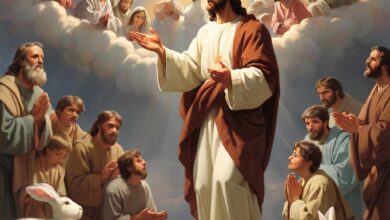15th Sunday in Ordinary Time Readings: Am. 7:12-15; Ps.84:9-14; Eph. 1:3-14; Mk.6:7-13The State of the Lord’s Mission Today May the Lord give you His peace!
The evangelist Mark already unveiled in his narrative the main reason for which the Lord Jesus
invited the disciples to be with Him; and to be sent to proclaim the Good News (cf. Mk. 3:13-
15). Today’s Gospel reveals to us the beginning of the fulfilment of this divine objective. So far,
the Lord Jesus has been the one working alone. He now sends the disciples in pairs to share in
His ministry; and they were to strictly follow His instructions. The reason is that they were called
without any application; and they were sharing His personal mission. What did the Lord expect
from them?
The first instruction was about their mode of movement: They were to strictly journey in pairs
and work as a team. It was worthwhile for them to mutually share their burdens looking at the
challenges associated with the Lord’s mission. The owner of the work Himself was rejected by
His own people, a factor which could lead to great disappointment and lack of enthusiasm for the
work. Thus, the need for them to embrace collaborative ministry. Again, they had to move in
pairs to give credence to their testimony in line with the Jewish norm: “A single witness will not
suffice to convict anyone of a crime or offence of any kind; whatever the misdemeanour, the
evidence of two witnesses or three is required to sustain the charge.” (NJB, Deut. 19:15).
Beloved, the Christian ministry from its inception has never been a walk alone business. It flows
from the inner life of God Who lives in eternal communion. Therefore, the success of the Church
in her mission, indispensably, depends on collaboration; for the Church is synodal by nature. On
the contrary, the state of the Lord’s ministry today, is the tendency to resort to clericalism; lone-
rangerism; and territorialism. Synodality is the way to go!
The second instruction concerns their appearance and supplies: The disciples were not to carry
many things; but to solely depend on divine sustenance (cf. Mk. 6:8-10). They were not
supposed to travel with things that could make them feel materially independent. This injunction
was meant to prevent them from becoming puff up with pride to the extent of thinking that they
could do it all by themselves without the grace of God and the help of others. Again, as itinerant
preachers, journeying with material possessions would make their movement from one place to
the other an uncomfortable one; and grasping for material possessions would lead to unnecessary
jealousy and infighting, which would eventually distract them from their main goal. Hence, the
command to be simple and modest as ministers of the Gospel.
Beloved, what is the state of the ministry today? We see in some places the unnecessary
competition in the usage of high-class gadgets; bodily appearance; and the shameful scramble for
titles, money, houses, etc. The common pastoral style today is the “Amaziah model” as we find
in today’s first reading: “To Amos, Amaziah said: “Off with you, seer, flee to the land of Judah
and there earn your bread by prophesying!” (NAB, Am.8:12). It is as if, all that there is in the
ministry is “my daily bread”. Can this not be a reason for which some contemporary pastors
scandalously malign their collaborators while others publicly fight over money and other
mundane things? The pastoral instruction is to be always simple and modest in our approach to
material things.
The third instruction was about their relationship with their audience: They were to humbly
aceept the generosity of their listeners; and to avoid consuming time on those who resist them
(cf. Mk. 6:10, 11). The Lord Jesus taught the disciples that if they were denied hospitality which
was a common Jewish duty given to strangers, they should not claim it as their inalienable right.
Instead, they were to treat them as a strict Jew would treat a Gentile house. The Jews believed
that the dust of a Gentile territory was defiled, and as such, whenever a person returned from a
trip, he must shake off every particle of the dust gathered from that unclean territory to justify the
fact that the Gentiles had no communion with them. Conversely, what is the state of the ministry
today? We oftentimes consume precious time in trying to convince people who have consciously
decided not to respect and welcome the teachings of the Church; and tragically compromise our
rich ecclesial heritage just to satisfy others. The Lord admonishes us to stick to His game plan,
and keep moving!
What message were they to carry as the messengers of the Lord? They were to simply preach
about repentance; and bring freedom to those in bondage (cf. Mk. 6:12,13). This was the crux of
the mission of the Lord, and if they were partaking in it, then, they could not do otherwise. When
the Lord sent the disciples, they did not craft their own message, they instead journeyed with
already cooked one; they did not talk about their opinions; but rather spoke about the Lord Jesus.
They were to preach repentance, which involved a complete change of one’s mind; a
transformation from an egoistic thinking to a God-centred one! The newness of life brought
God’s mercy and inner freedom through healing to the believers. What is the state of the mission
today? Many preachers like the false prophet Amaziah preach and do what the people want,
instead of the message of repentance the Lord has sent them to deliver.
In a nutshell, today’s Gospel invites us to critically evaluate our baptismal call to gratuitously
partake in the mission of Christ. Are we doing the will of the Lord who has sent us or we have
become distracted like the prophet Amaziah because of the benefits we receive in the ministry?
May the Lord give you His peace!

